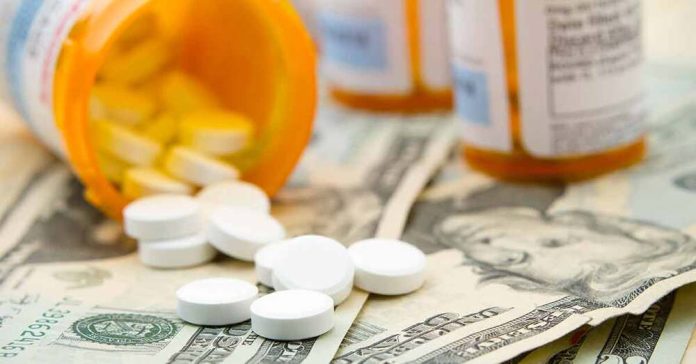Patients seeking care in Nigeria are up against hikes in the cost of accessing care as prices of drugs in the country have increased significantly.
Findings show that the prices of essential medications have increased as much as 100 per cent, compared to the prices of the medications in the last two months.
Meanwhile, pharmacists say the increase is a result of inflation, the foreign exchange rate, and the increase in the prices of the Premium Motor Spirit, known as Petrol.
Nigeria’s headline inflation rate accelerated for the sixth consecutive time to 22.79 per cent in June 2023, according to the National Bureau of Statistics.
The inflation rate in Africa’s biggest economy rose to a new 17-year high of 22.79 per cent in June 2023 from 22.41 per cent in the previous month.
The naira also retained its downward trend against the dollar as it traded for 876/$ at the parallel market as of Sunday.
Since the unification of the exchange rates by the Central Bank of Nigeria, the naira continues to slide to the dollar, due to liquidity crunch, speculations, and other challenges.
Also, the pump price of petrol in many filling stations increased from N537/litre to N617/litre.
A patient, Mrs Abiodun Oke said the antihypertensive medication she used to buy for N7000 has increased to N11,500.
“When I went to the nearby pharmacy to buy my medication -Exforge 10 mg/160 mg, it has increased to N11,500, and there is no assurance that the prices will not go up. I have to strategise on how to cut down on some things now so that can be able to afford my medication,” Oke lamented.
Another patient, Mr Bode Aluko said he has resorted to self-medication since he could not afford his medication.
“The Galvusmet (antidiabetes) I used to buy for N4000 is now sold for N6500. How do I survive? I have other responsibilities, and I have to eat before taking the medications.”
Findings also showed that Augmentin 1g sold for N6200 two months ago is now sold for N13,000; Zinnat 500mg is now sold for N6000 as against N4000.
Also, Cefunat 500mg (antibiotics) was N2800 two months ago, but it is sold for N4200, and Diovan 160mg was N5800 but it is now N7500.
The Founder and Chief Executive Officer, HubPharm Africa, Sesan Kareem, said, “Almost all the drugs have increased significantly by either 100 per cent, 70 per cent, or 50 per cent.
“The inflation rate has increased and it is what we buy, we will sell, but we hope things will change for the better.”
Also, the chairman of the Lagos State branch of the Pharmaceutical Society of Nigeria, Gbolagade Iyiola said the increase in prices of drugs is a major concern in the health sector, and there is a need for action to avert the consequences.
“With the increasing prices of drugs, many people will have to start self-medicating, which is not good for the country, we are already battling with a lot of health issues in the country, and we need the government to intervene.
“Many patients also depend on out-of-pocket care, and they may not be able to afford care or buy the needed medications for their ailments.”
Nigeria’s health system has been underfunded, and as a result, over 70 percent of the money spent on healthcare in Nigeria is out-of-pocket, especially at point-of-care.
Since 2001, Nigeria has failed in its Abuja Declaration commitment to ensure 15 per cent of its annual budgetary allocation goes to the health sector.


